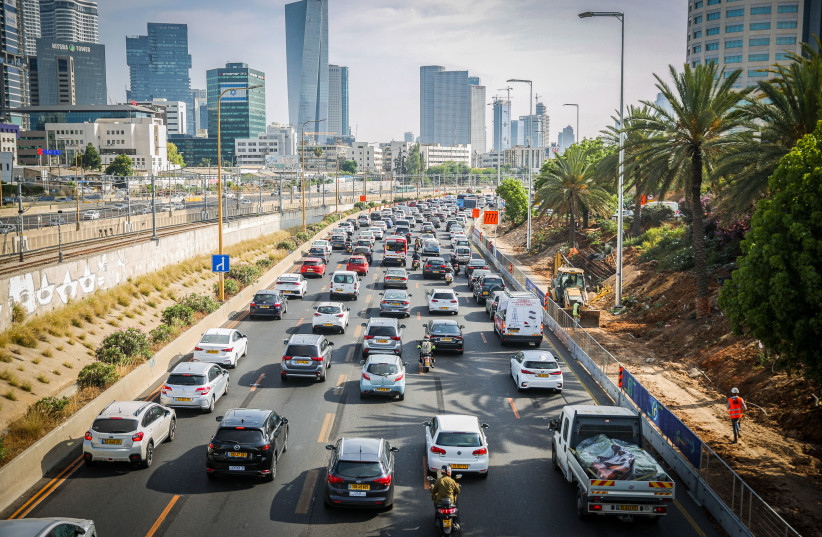The Jewish State is on the way to becoming the world’s most crowded Western country in less than three decades, veteran environmental activist and current MK Alon Tal told the Special Committee on Addictions, Drugs and the Challenges Facing Young Israelis at the Knesset on Monday.
The committee dealt with the impact of the loss of open spaces on the well-being of the younger generation in 2050. Tal (Blue and White) presented statistics from a research report prepared by an environmental group called Zafuf [Crowded] — The Forum for Population, Environment and Society, that indicated that by 2050, the country’s population could grow to more than 17.5 million residents.
“The State of Israel will become the most crowded Western country, with over 800 people per square kilometer,” Tal said. “We are familiar with the reality, and know that protecting open spaces isn’t enough. I want to know what the Israel Planning Administration and the Construction and Housing Ministry of are doing to translate their statements into reality. The open spaces are disappearing at a dizzying rate of 24 square kilometers per year, and the pace will increase along with the growth in population.”
Tal warned that Israel is expected to lose open spaces on a scale that is eight times the size of the city of Tel Aviv by 2050. He called upon all professional agencies to advance a strategic plan for protection of open spaces immediately.
"We're in an existential crisis"
"We all have to understand that we’re in an existential crisis,” said committee chairman Ram Shefa (Labor). “We are young people who are worried about what will be here in 30 years. The mass media doesn’t understand the severity of the situation. Instead of crowding the cities, people are taking over agricultural green areas. Our job is to cause a change in awareness and to influence legislation, so that the Environmental Protection Ministry can make the changes that it needs to make.”

Oded Caspi of the organization “Save the Jerusalem Hills” told the committee about the struggle it is waging over the policy for construction in the Jerusalem Hills.
"We are young people who are worried about what will be here in 30 years. The mass media doesn't understand the severity of the situation. Instead of crowding the cities, people are taking over agricultural green areas."
MK Ram Shefa
“When we threaten our open spaces, and trample them through faulty planning, we directly harm the young people and next generations, which will simply not enjoy this peace of mind at a reasonable distance from their home,” Caspi said.
“I am calling upon the Knesset to support our battle until the Jerusalem Hills receive official protection from the state. Israel’s residents need nature, no less than any planned building and road. We are headed down a very bad path to an ecological and mental health disaster. If we don’t win this war, we’ll lose everything.”
Dr. Ana Trakhtenbrot, who heads the Biodiversity Section at the Ministry of Environmental Protection, said her ministry’s vision is for each municipality to have a municipal survey enabling it to know which urban natural areas under its jurisdiction it has to care for and preserve.
Ayelet Assouline of the Israel Planning Administration said her office was promoting plans aimed at preserving open spaces while addressing environmental and ecological issues.
“I’m aware that there are very great development pressures, and an effort is being made to balance between development and preservation of open spaces,” she said.
